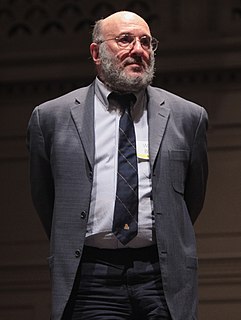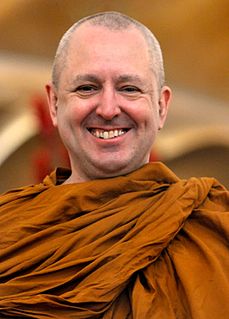A Quote by Milton Friedman
Indeed, a major source of objection to a free economy is precisely that it... gives people what they want instead of what a particular group thinks they ought to want. Underlying most arguments against the free market is a lack of belief in freedom itself.
Related Quotes
What most people really object to when they object to a free market is that it is so hard for them to shape it to their own will. The market gives people what the people want instead of what other people think they ought to want. At the bottom of many criticisms of the market economy is really lack of belief in freedom itself.
How can I set free anyone who doesn't have the guts to stand up alone and declare his own freedom? I think it's a lie - people claim they want to be free - everybody insists that freedom is what they want the most, the most sacred and precious thing a man can possess. But that's bullshit! People are terrified to be set free - they hold on to their chains. They fight anyone who tries to break those chains. It's their securityHow can they expect me or anyone else to set them free if they don't really want to be free?
We live in a free society, and freedom means freedom for everybody. We shouldn't be able to choose and say, 'You get to live free and you don't.' That means people should be free to enter into any kind of relationship they want to enter into. Like Joe (Lieberman), I'm also wrestling with the extent to which there ought to be legal sanction of those relationships. I think we ought to do everything we can to tolerate and accommodate whatever kind of relationships people want to enter into.
I think of the old slavery, and of the way The Economy has now improved upon it. The new slavery has improved upon the old by giving the new slaves the illusion that they are free. The Economy does not take people's freedom by force, which would be against its principles, for it is very humane. It buys their freedom, pays for it, and then persuades its money back again with shoddy goods and the promise of freedom. "Buy a car," it says, "and be free. Buy a boat and be free." Is this not the raw material of bad dreams? Or is it maybe the very nightmare itself?
My belief in free competitive economic enterprise does not rest solely or even mainly on arguments of economic efficiency, though, heaven knows, these are cogent enough. It rests essentially on the view that the free market is the only safe way of ensuring that productive effort is directed towards supplying what individuals actually want, and in a way which secures the dignity and independence of the worker.
If we as a society want to cure unemployment, raise real wages, and in other ways improve our economy, we will base public policy on private property rights, the non-aggression principle and the law of free association. In the free and prosperous society, everyone may do precisely as he pleases, provided only that he does not initiate violence against non-aggressors.
We must show that liberty is not merely one particular value but that it is the source and condition of most moral values. What a free society offers to the individual is much more than what he would be able to do if only he were free. We can therefore not fully appreciate the value of freedom until we know how a society of free men as a whole differs from one in which unfreedom prevails.
Our modern Western culture only recognises the first of these, freedom of desires. It then worships such a freedom by enshrining it at the forefront of national constituitions and bills of human rights. One can say that the underlying creed of most Western democracies is to protect their people's freedom to realise their desires, as far as this is possible. It is remarkable that in such countries people do not feel very free. The second kind of freedom, freedom from desires, is celebrated only in some religious communities. It celebrates contentment, peace that is free from desires.
A belief in feminism is a belief in personal freedom - the freedom to live a life free of fear of violence, to select a fulfilling career and be compensated fairly, to choose when to start a family, to marry whom you love. I want everyone, regardless of gender, to live a life free of restriction or fear, able to pursue their own personal brand of happiness and fulfillment.































